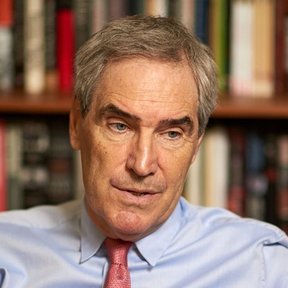Michael Ignatieff was born in Toronto of Russian and Scottish Canadian heritage. His parents were foreign service officers. After graduating from high school in Toronto, he attended the University of Toronto, graduating with a first class honors degree in history. He entered the Graduate School of Arts and Sciences at Harvard University in September 1969 and graduated in 1975 with a doctorate in history. He rewrote his doctoral dissertation and turned it into his first book, A Just Measure of Pain: The Penitentiary in the Industrial Revolution, 1750–1850, published by Pantheon in 1978. After two years as an assistant professor of history at the University of British Columbia, he was awarded a senior research fellowship at King’s College, Cambridge, where he led a research project with Istvan Hont on the origins of classical economic theory. This resulted in Wealth and Virtue: The Shaping of Political Economy in the Scottish Enlightenment, published by Cambridge University Press in 1983.
After Cambridge, Ignatieff spent the next 16 years as a freelance writer and broadcaster, mostly for the BBC, based in London. His most notable project in that period was Blood and Belonging: Journeys into the New Nationalism, a six-part television series that also appeared as a book, republished in a new edition in 2023. His writings on nationalism, ethnic war, and intervention earned an invitation to the Harvard Kennedy School, and he became director of the Carr Center for Human Rights Policy and professor of practice there, between 2000 and 2005. In this period, he served on two international commissions on intervention, one on Kosovo, chaired by Richard Goldstone, and another, the International Commission on Sovereignty and Intervention, chaired by Gareth Evans and Mohamed Sahnoun, which reported to the UN secretary general in 2001.
In 2005, Ignatieff accepted an invitation to return to Canada and run for federal office in the Parliament of Canada. He was elected to Parliament in January 2006 and served as deputy leader, leader of the Liberal Party of Canada, and leader of the Official Opposition. In 2011, after defeat in the election of that year, he left politics and returned to academic life, first as a professor at the University of Toronto and then at the Harvard Kennedy School, where he served as the Edward R. Murrow Professor of the Practice of Press, Politics, and Public Policy between 2013 and 2016. In 2016, he accepted an appointment as rector and president of the Central European University in Budapest, Hungary, leading the university through a tumultuous period when it came under attack by the government of Viktor Orbán and was forced to relocate to Vienna, Austria. In 2021, having led the university to safety, he stepped down and returned to the classroom as a professor in the history department.
Ignatieff is the author of 18 books, including a biography of Isaiah Berlin, as well as works on human rights, intervention and state sovereignty, the ethics of the war on terror, and the political theory of liberalism. His most recent book is On Consolation: Finding Solace in Dark Times. He is the recipient of Canada’s highest civilian honor, the Order of Canada, and has been awarded 14 honorary degrees.





